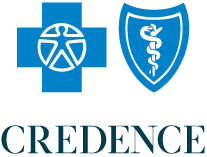Six in ten American adults worry about whether they can afford unexpected medical costs.1 In December 2020, the No Surprises Act was signed into law as part of the Consolidated Appropriations Act (CAA) of 2021. The law set up new protections for healthcare consumers related to costs and billing, to help make healthcare more affordable for consumers.
How the No Surprises Act will help
The No Surprises Act protects you from unexpected medical bills for services from out-of-network providers. So, when you don’t have the opportunity to choose your provider, you can’t be billed for more than what your in-network payment would be.
Here’s an example. If you needed surgery before the No Surprises Act, you could have chosen an in-network hospital and surgeon, but you may not have been able to choose your anesthesiologist. If that doctor wasn’t in your plan’s network, you could have received large medical bills you weren’t expecting. The No Surprises Act protects you from situations like that, where you don’t get to choose the provider.
The law also ensures:2
- Emergency care is always treated as in-network.
- You can still get treatment from the providers you want to use.
- Providers use clear language to get your approval for treatment and billing, if they are out of network.
Other changes you may notice2
- Effective 1/1/22, ID cards must list your deductible and out-of-pocket maximum for both in-network and out-of-network care. They also must include a phone number and website where you can find more details about your benefits.
- Effective 1/1/22, provider directories must be updated every 90 days. If a provider leaves the network, your plan must continue to cover them as in-network for up to 90 days, for certain serious or long-term conditions. If you visit a provider who was wrongly listed as in-network, your plan will cover the care they provided at the in-network rate.
- Effective 1/1/23, your health plan must provide personalized out-of-pocket cost information via a cost-comparison tool. The CAA and the No Surprises Act will make it easier to understand your healthcare costs and plan for expenses. You can learn more about the No Surprises Act at this link. The Federal Government requires model language regarding the No Surprises Act to be posted on a group health plan’s website.
- Kaiser Family Foundation, KFF Health Tracking Poll – March 2022 (accessed July 2022): https://www.kff.org/health-costs/poll-finding/kff-health-tracking-poll-march-2022/
- Centers for Medicare & Medicaid Services, Ending Surprise Medical Bills (accessed July 2022): cms.gov/nosurprises

